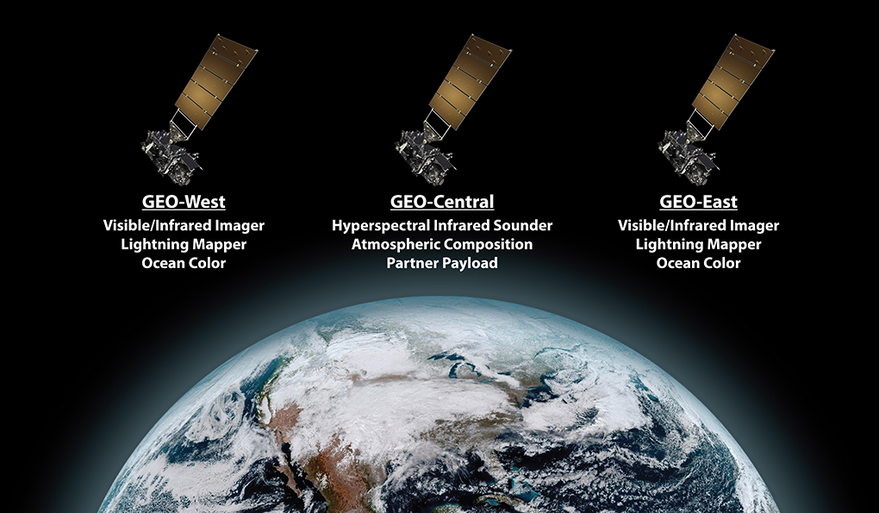WASHINGTON — The highest Republican members of two oversight committees have asked the Government Accountability Office (GAO) to review a serious latest weather satellite program.
In a June 1 letter, Rep. Frank Lucas (R-Okla.), the chairman of the House Science Committee, and Sen. Ted Cruz (R-Texas), rating member of the Senate Commerce Committee, requested the review of the National Oceanic and Atmospheric Administration’s Geostationary Prolonged Operations, or GeoXO, program of next-generation weather satellites, citing concerns about cost overruns and delays.
GeoXO is the successor to the continued GOES-R line of geostationary weather satellites that can ensure continuity of observations in addition to latest capabilities. NOAA projects spending $19.6 billion over the lifetime of the six-satellite GeoXO program, extending to the center of the century, nearly double what it spent on GOES-R.
Of their letter, Lucas and Cruz didn’t cite any specific issues with GeoXO but as an alternative noted prior cost and schedule problems with GOES-R. “The delays and budget overruns within the GOES-R program make it all of the more vital to be sure that GeoXO is well-managed, as any problems might be magnified by the greater complexity and value of GeoXO,” they wrote.
They asked that the GAO examine if NOAA has followed “best practices and statutory guidance” in setting cost estimates for GeoXO, review the design and development of this system, assess NOAA’s strategies to remain on cost and schedule, and have a look at how NOAA has incorporated lessons learned from GOES-R.
The GeoXO program remains to be in its early phases. NOAA chosen L3Harris in March to supply the imager instrument for the satellites under a $765.5 million contract. NOAA plans to pick out a provider for a brand new sounder instrument later within the yr.
NOAA requested $417.4 million for GeoXO in its fiscal yr 2024 budget proposal. This system received $285 million in fiscal yr 2023, far lower than the $653.8 million it requested. Appropriators said the funding they provided could be sufficient to finish formulation studies and award the imager contract.
“NOAA’s current constellation has proven its price and can proceed to achieve this for one more decade. Nonetheless, NOAA must concurrently put money into the subsequent generation of environmental satellites with the needs of all of our communities in mind,” Rick Spinrad, NOAA administrator, said in his opening statement at a House Science Committee hearing May 11 about his agency’s budget proposal, noting that the funding for GeoXO and other future satellite programs would “ensure critical data continuity” from existing systems and add latest capabilities.
Spinrad also said on the hearing that he was working to create a “rigorous acquisition strategy and structure” at NOAA, one which, for weather satellite programs, will proceed to depend on NASA for handing procurements of satellites and instruments.
“While these seem like positive steps,” Lucas and Cruz said that effort of their letter to the GAO, “it’s unclear if this latest process might be successful.”






:quality(70)/cloudfront-us-east-1.images.arcpublishing.com/archetype/TCIQQJM5RRHSJMHIWL7VR2L3BI.jpg)
